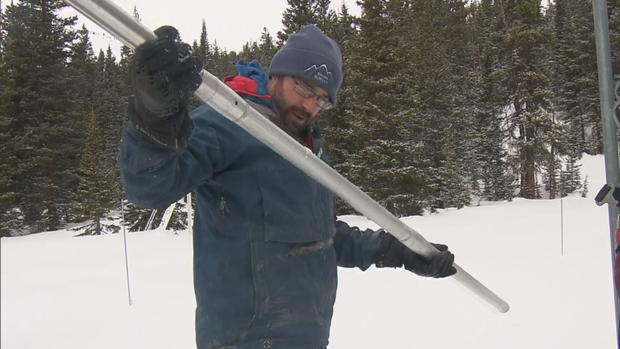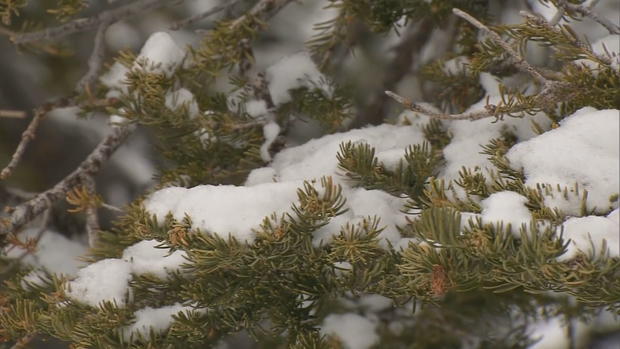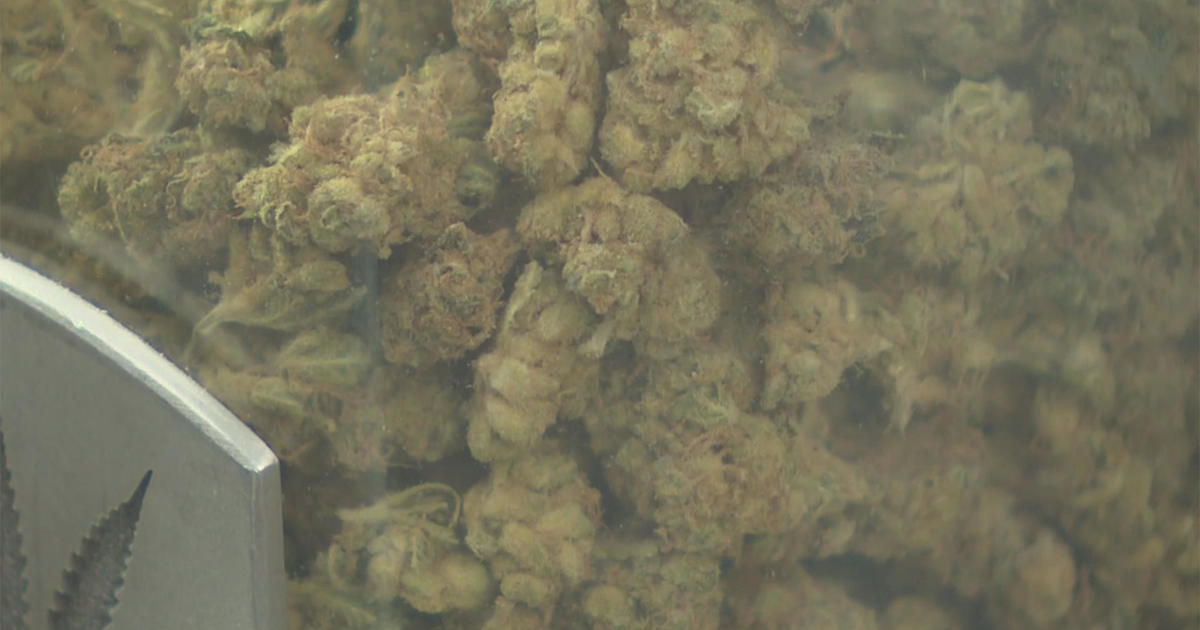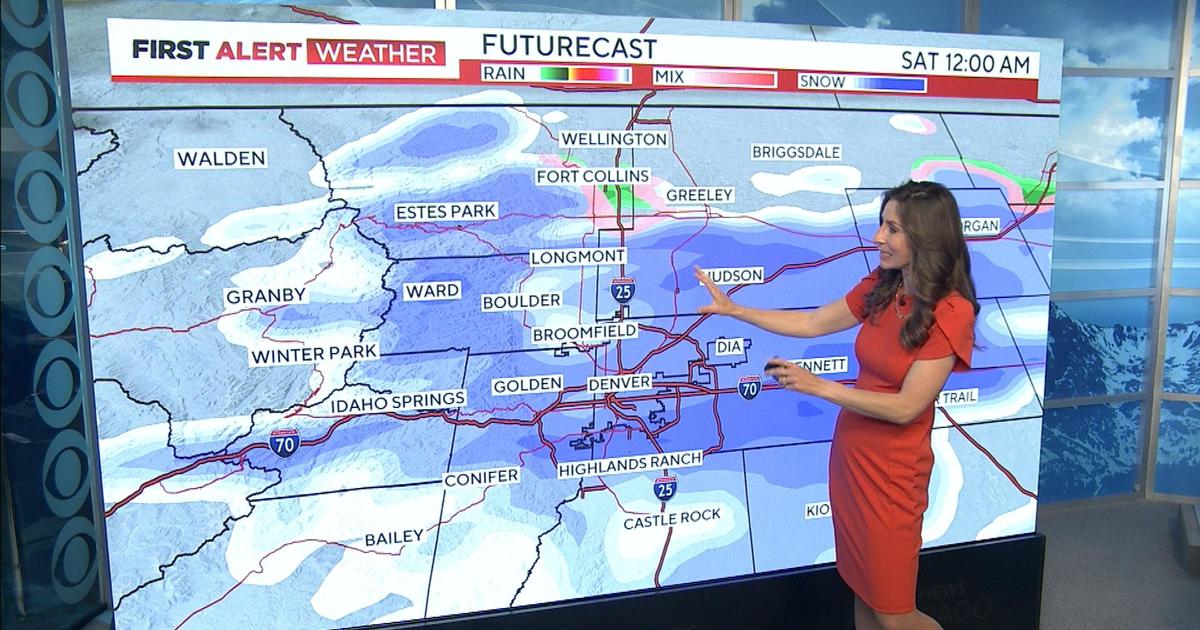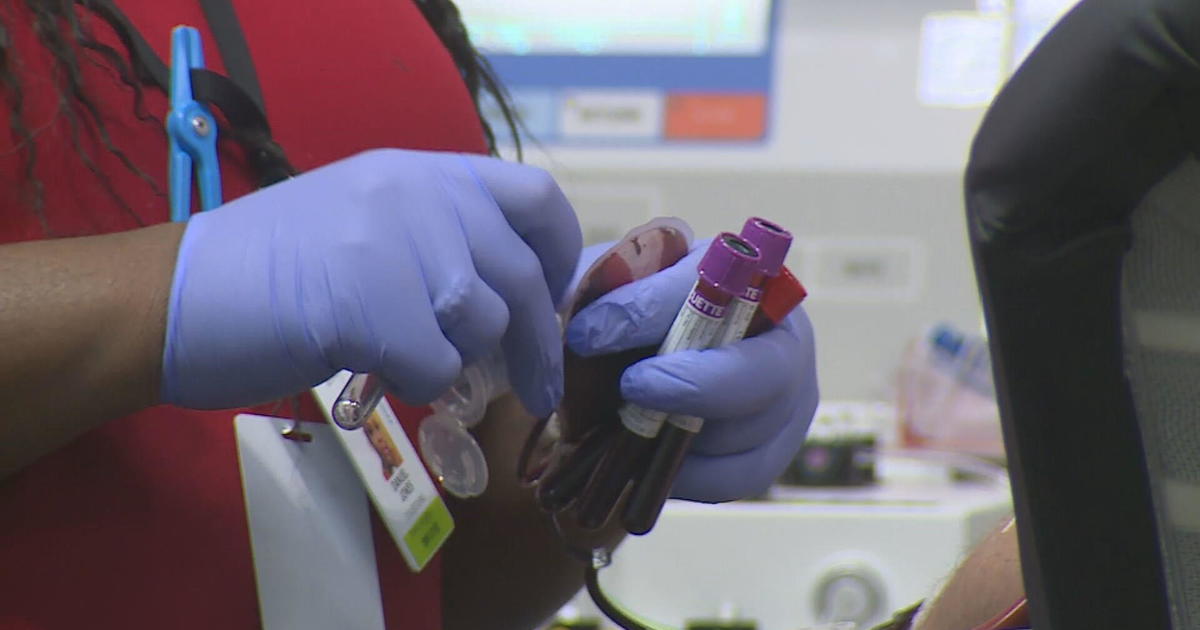Colorado Snowpack Monitoring Experts See Some Warning Signs, Anticipate Lower Stream Flow Runoff
BERTHOUD PASS, Colo. (CBS4) - Spring runoff in Colorado is usually marked by swelling muddy waterways, but this season things may look a little different.
"We know the soils under the snowpack are so dry that it basically has to absorb so much of that, like a sponge, before it transmits it through to a river channel," said Karl Wetlaufer, Assistant Supervisor for the USDA-NRCS Colorado Snow Survey.
On Wednesday, Wetlaufer and fellow hydrologist Mike Ardisan made the trek up to Berthoud Pass, one of Colorado's 115 SNOTEL sites, to look at snowpack data.
"When you look at our data, our annual precipitation will commonly be different than our snowpack, that's because we start officially measuring this on Oct. 1. In this year, it was a really dry October so there's an even bigger difference between the snowpack and precipitation value."
RELATED: No Change In Colorado's Drought Severity This Week
The SNOTEL sites wirelessly transmit a number of data points -- not just snow depth. The moisture content is equally as important, and snow depth is one way to measure that. It starts with a simple tube inserted into the snow until it hits ground.
"We're essentially weighing what's in the tube," said Ardisan. "That weight gives you a pretty much exact measurement of what the liquid water content would be."
At Berthoud Pass, one of the highest SNOTEL sites and where Grand County and Clear Creek County meet, the snow depth measured just over 50 inches in most spots. The calculations determined that was equal to about 16 inches of water.
"We're definitely anticipating significantly lower stream flow runoff, especially compared to our observed snowpack and were actually seeing a net decrease in snowpack even over the last week since April 1."
The data plays an important role when it comes to our water resources. Coming off a dry summer followed by a dry winter, the melting snow that normally floods our waterways will head straight for the dry soil, impacting reservoirs and recreation.
"With those dry soils, streamflow runoff could be ... 20% less compared to percent of normal," said Wetlaufer.
The latest streamflow forecast ranges from 40-50% below normal (average) in southwest Colorado, to just 10-15% below normal in the South Platte and Arkansas Basins.
Experts predict many areas will face water restrictions this summer.
"We did observe a similar effect last year but this year, we're expecting it to be more dramatic," he continued, "it's going to take substantial spring and summer precipitation to really recover."
